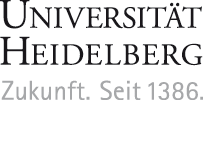Appreciation for the Heidelberg Center for Latin America from Federal Chancellor Angela Merkel
15 May 2008
High praise for the University of Heidelberg’s pioneering spirit at the conference on "Germany, Europe and Latin America”
In 2001 the University of Heidelberg broke new ground with the foundation of the Heidelberg Center for Latin America. Since then the only graduate centre in Latin America run by a German university has been operating in the Chilean capital Santiago. Support has been provided by the state of Baden-Württemberg and the German Academic Exchange Service (DAAD). In the meantime, the Heidelberg Center has firmly established itself on the Latin American higher-education market.
The Master’s course on international law devised by Heidelberg’s Faculty of Law and the Max Planck Institute for Comparative Public Law and International Law in collaboration with the Universidad de Chile attracts students from all over Latin America and other parts of the world. The bi-national doctoral course on psychotherapy has been taken as a model for other doctoral courses in preparation at the moment.
Continuing education programmes on legal subjects have been tested in Chile and are now being exported to other countries on the continent. These are Paraguay, Brazil, Colombia and Mexico. As of 2009 the Center will be offering a Master’s course on medical physics.
The success of the Heidelberg Center has encouraged the Fraunhofer Society and the Max Planck Society to set up research centres of their own in Latin America. Whereas other German universities and colleges have tended to favour Eastern Europe and Asia as locations for their outstations over the past few years, the University of Heidelberg set its sights on Latin America at an early stage.
At the conference "Germany, Europe and Latin America” on 8 May, Federal Chancellor Angela Merkel warmly commended the pioneering spirit displayed by the University. In her speech she advocated further intensification of cooperation between the European Union, Germany and Latin America, notably in research and higher education. It is safe to forecast that an agreement on this point will be one of the products of the EU-Latin America summit on 16/17 May 2008 in Lima. The new political departures envisaged by Germany and Europe for relations with Latin America will have a positive impact on academic cooperation between the University of Heidelberg and its Latin American partners. The experience garnered at the Heidelberg Center since 2001 will be of major benefit to the University of Heidelberg in future.
Please address any inquiries to
Dr. Walter Eckel
Director of the Heidelberg Center for Latin America
walter.eckel@heidelbergcenter.cl
Dr. Michael Schwarz
Public Information Officer
University of Heidelberg
phone: 06221/542310, fax: 542317
michael.schwarz@rektorat.uni-heidelberg.de
http://www.uni-heidelberg.de/presse
Irene Thewalt
phone: 06221/542310, fax: 542317
presse@rektorat.uni-heidelberg.de
The Master’s course on international law devised by Heidelberg’s Faculty of Law and the Max Planck Institute for Comparative Public Law and International Law in collaboration with the Universidad de Chile attracts students from all over Latin America and other parts of the world. The bi-national doctoral course on psychotherapy has been taken as a model for other doctoral courses in preparation at the moment.
Continuing education programmes on legal subjects have been tested in Chile and are now being exported to other countries on the continent. These are Paraguay, Brazil, Colombia and Mexico. As of 2009 the Center will be offering a Master’s course on medical physics.
The success of the Heidelberg Center has encouraged the Fraunhofer Society and the Max Planck Society to set up research centres of their own in Latin America. Whereas other German universities and colleges have tended to favour Eastern Europe and Asia as locations for their outstations over the past few years, the University of Heidelberg set its sights on Latin America at an early stage.
At the conference "Germany, Europe and Latin America” on 8 May, Federal Chancellor Angela Merkel warmly commended the pioneering spirit displayed by the University. In her speech she advocated further intensification of cooperation between the European Union, Germany and Latin America, notably in research and higher education. It is safe to forecast that an agreement on this point will be one of the products of the EU-Latin America summit on 16/17 May 2008 in Lima. The new political departures envisaged by Germany and Europe for relations with Latin America will have a positive impact on academic cooperation between the University of Heidelberg and its Latin American partners. The experience garnered at the Heidelberg Center since 2001 will be of major benefit to the University of Heidelberg in future.
Please address any inquiries to
Dr. Walter Eckel
Director of the Heidelberg Center for Latin America
walter.eckel@heidelbergcenter.cl
Dr. Michael Schwarz
Public Information Officer
University of Heidelberg
phone: 06221/542310, fax: 542317
michael.schwarz@rektorat.uni-heidelberg.de
http://www.uni-heidelberg.de/presse
Irene Thewalt
phone: 06221/542310, fax: 542317
presse@rektorat.uni-heidelberg.de
Editor:
Email


